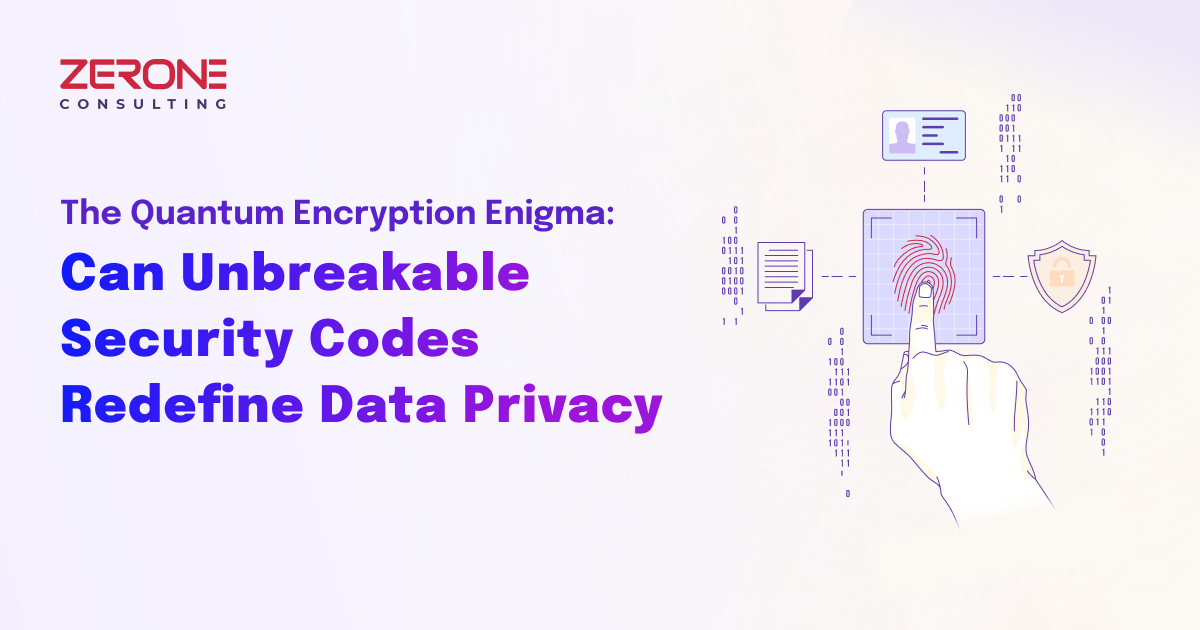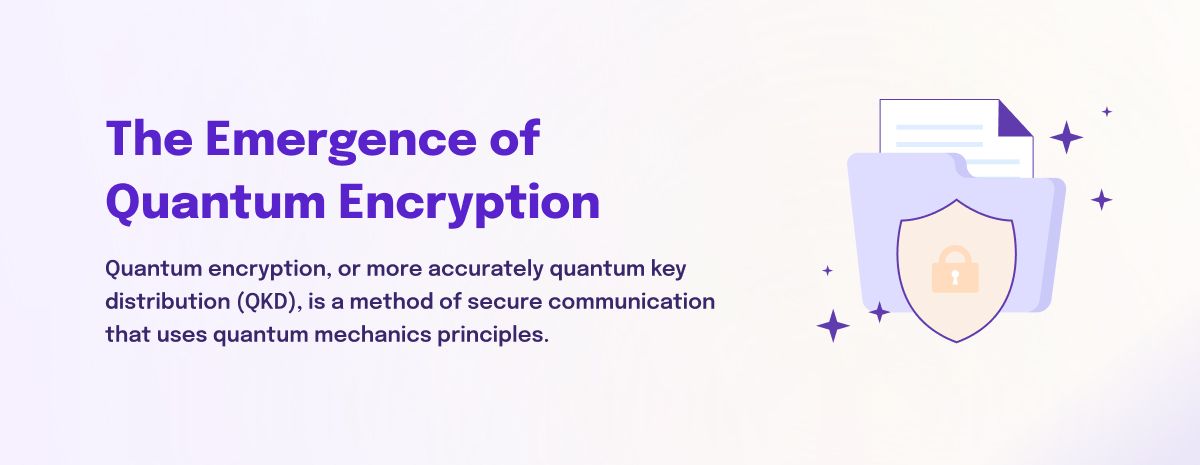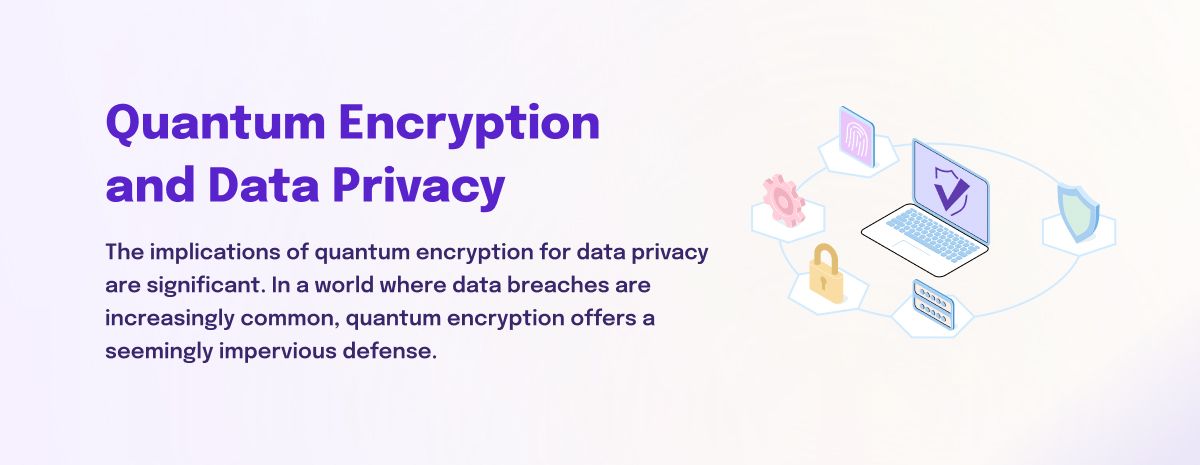The Quantum Encryption Enigma: Can Unbreakable Security Codes Redefine Data Privacy?
In the ever-evolving landscape of digital security, quantum encryption emerges as a groundbreaking technology with the potential to redefine data privacy and security. This in-depth exploration delves into the fascinating realm of quantum encryption, shedding light on its significant impact and the latest developments that are shaping this rapidly evolving field.

The Emergence of Quantum Encryption
Quantum encryption, or more accurately quantum key distribution (QKD), is a method of secure communication that uses quantum mechanics principles. Traditional encryption methods, no matter how complex, always bear the risk of being deciphered. Quantum encryption, however, is considered unbreakable – a paradigm shift in data security.

The Principles Behind Quantum Encryption
At its core, quantum encryption leverages the fundamental properties of quantum particles like photons. The Heisenberg Uncertainty Principle asserts that the act of measuring a quantum particle inevitably alters its state. Thus, any attempt at eavesdropping on a quantum-encrypted message would change its state, revealing the intrusion.
Current State of Quantum Encryption
Quantum encryption is not just theoretical. Companies like ID Quantique in Switzerland and Qubitekk in the USA are pioneering this technology. According to a report by MarketsandMarkets, the quantum cryptography market size is projected to grow from USD 102 million in 2020 to USD 380 million by 2025, at a CAGR of 30.1%.
Key Developments and Innovations
-
Satellite-based QKD: China has been a forerunner in this arena with the launch of Micius, the world's first quantum satellite, enabling secure communication over a distance of up to 1,200 kilometers.
-
Fiber Network Trials: Several countries, including the UK and Japan, have successfully conducted quantum encryption trials over existing fiber optic networks, marking a significant step towards practical deployment.
-
Integration with Existing Infrastructure: Companies are focusing on making quantum encryption compatible with existing telecommunications infrastructure, reducing the need for specialized quantum networks.
-
Commercial Quantum Encryption Products: There's a growing market for quantum encryption products. For example, ID Quantique's quantum key distribution system, Cerberis3, offers end-to-end encryption for data in transit.
Challenges and Future Prospects
Despite its promise, quantum encryption faces challenges. The technology is currently expensive and requires highly sensitive equipment. Additionally, the quantum internet, necessary for widespread use of quantum encryption, is still in its infancy.
However, with quantum computing threatening to break current encryption standards, the importance of quantum encryption cannot be overstated. Governments and organizations are investing heavily in this technology to future-proof their data security.
Quantum Encryption and Data Privacy
The implications of quantum encryption for data privacy are significant. In a world where data breaches are increasingly common, quantum encryption offers a seemingly impervious defense. It could protect sensitive information ranging from national security details to personal financial data, ensuring privacy and trust in digital communications.

The Race Against Quantum Computing
The development of quantum encryption is partly fueled by the race against quantum computing. Quantum computers, once fully operational, could break current cryptographic algorithms. Quantum encryption is seen as a crucial countermeasure to protect data against such quantum attacks.
Global Initiatives and Collaborations
Global collaboration is key in this field. The European Union's Quantum Flagship program, with a budget of €1 billion, is a notable initiative aiming to develop quantum technologies, including encryption. Similarly, the USA’s National Quantum Initiative Act, which dedicates $1.2 billion to quantum research, is another significant step.
Conclusion
Quantum encryption represents a major leap forward in securing digital communications. While challenges remain, its development is crucial in the era of quantum computing. As this technology matures, it holds the promise of creating an unbreakable shield for data privacy, making it an essential area of investment for governments and corporations alike.
We can help!
Navigating The Post-x Era: Exploring Alternative Social Media Platforms
#Applicationdevelopment
Navigating The Data Migration Surge With Generative Ai: A Strategy For 2024
#Applicationdevelopment



